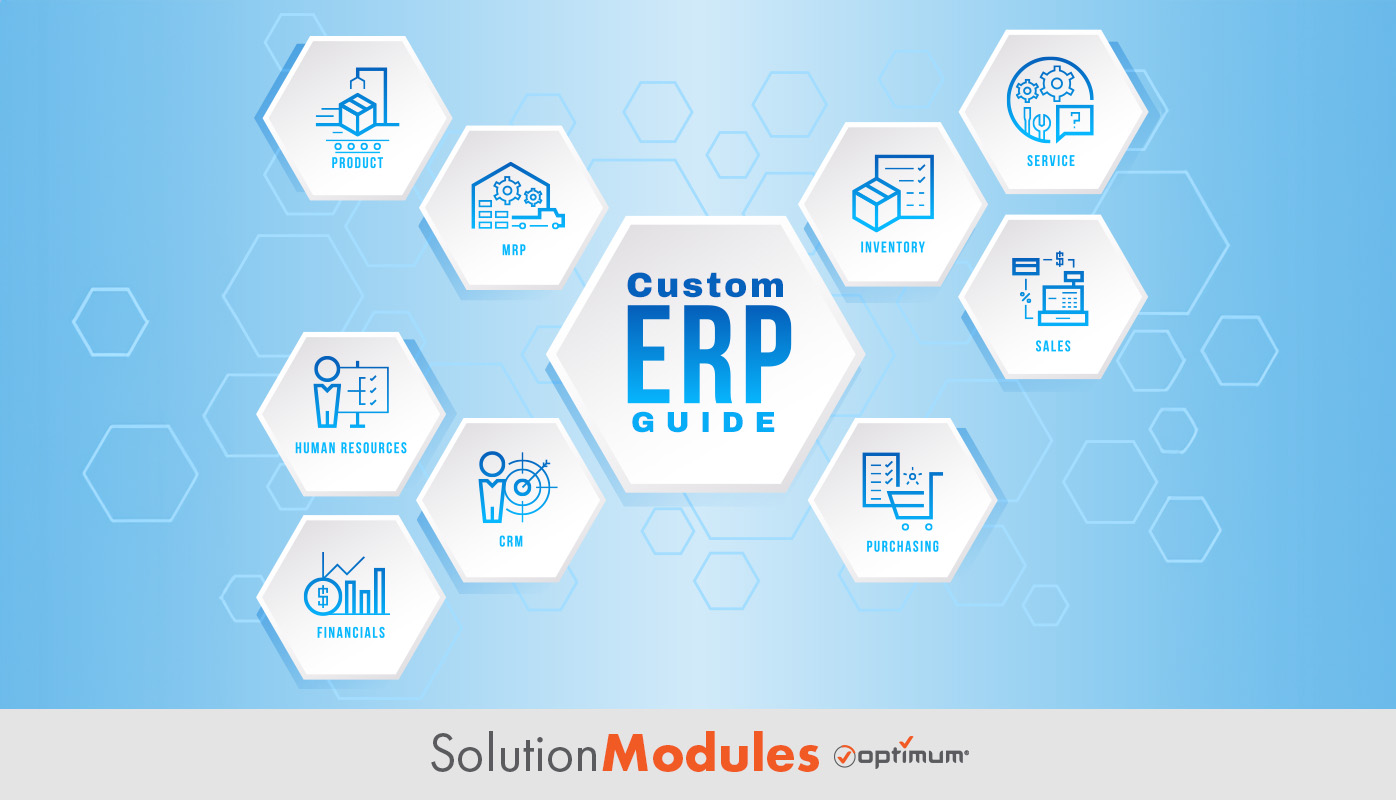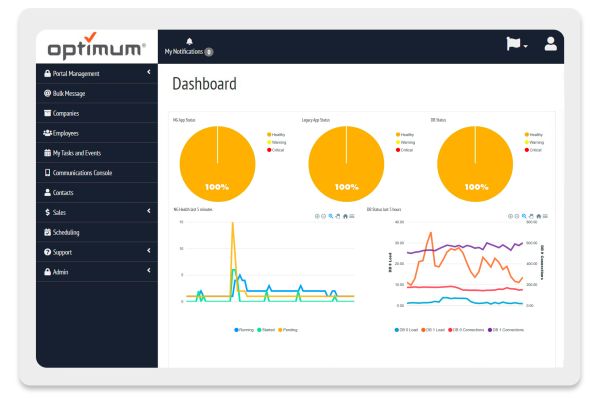
Your Guide to Custom ERP Software
Table of Contents
- What is Custom ERP Software?
- Why Choose Custom ERP Over Generic Solutions?
- Core Features of Custom ERP Software
- Key Benefits of Custom ERP Software
- Cloud-Based ERP vs. On-Premise ERP Solutions
- The Role of No-Code Platforms in Custom ERP Development
- Implementing Custom ERP Software: A Step-by-Step Guide
- FAQ
- Conclusion

Discover the benefits of custom ERP solutions for businesses, including cloud-based ERP, no-code platforms, and automation workflows that boost scalability and efficiency. By adopting a custom ERP system, businesses gain the flexibility to tailor their ERP solutions to meet unique requirements, automate workflows, and scale with growth.In this guide, we will explore the features and benefits of custom ERP software, focusing on cloud-based ERP, no-code platforms, and the future of business management software.
Key Takeaways
- Custom ERP software offers tailored solutions designed to meet specific business needs, improving operational efficiency and user experience.
- Cloud-based ERP solutions provide accessibility, scalability, and cost-effectiveness, making them ideal for businesses of all sizes.
- No-code platforms revolutionize ERP development by enabling businesses to build systems without extensive coding knowledge.
- Features like automation workflows, real-time reporting, and CRM integration streamline processes and enhance decision-making.
What is Custom ERP Software?
Custom ERP software refers to a tailored solution specifically designed to meet the needs of a business. Unlike standard ERP systems that offer broad functionality, custom ERP systems are built to integrate seamlessly with the organization’s specific processes and workflows, providing a more efficient and user-friendly experienceThese systems centralize business operations, from inventory management to customer relationship management (CRM), offering a unified platform that supports automation workflows, data migration, and more.
Why Choose Custom ERP Over Generic Solutions?
While generic ERP systems offer a one-size-fits-all approach, custom ERP systems offer significant advantages:
- Tailored Functionality: Custom ERP solutions are specifically designed to meet the unique business processes of a company. This ensures greater accuracy and efficiency.
- Scalability: Whether your business is growing rapidly or requires flexibility, a custom ERP system is scalable, able to evolve with your business’s needs.
- Integration: Custom ERP solutions integrate seamlessly with other critical systems such as CRM, HR, and financial tools, streamlining workflows and enhancing efficiency.
- Improved User Experience: Customization ensures a user-friendly interface designed specifically for your team, helping them navigate processes with ease.
Core Features of Custom ERP Software
Custom ERP solutions come with a wide variety of features that help businesses streamline operations and enhance productivity. Key features of a custom ERP system include:
- Advanced Reporting and Analytics
Custom ERP solutions are specifically designed to meet the unique business processes of a company. This ensures greater accuracy and efficiency. - Automation of Workflows
One of the primary advantages of a custom ERP solution is workflow automation. By automating repetitive tasks such as order processing, inventory management, and employee scheduling, businesses can increase operational efficiency, reduce human error, and free up valuable time for employees. - Inventory and Supply Chain Management
For businesses managing physical products, inventory control is crucial. A custom ERP system optimizes inventory management, enabling businesses to track stock levels in real time and forecast demand. This ensures businesses always have the right amount of stock on hand, reducing waste and improving customer satisfaction. - CRM Integration
Integrating CRM into a custom ERP system helps businesses improve customer service by providing a complete view of customer interactions. Businesses can track customer histories, interactions, and preferences, ensuring a personalized experience that enhances customer loyalty and satisfaction. - Financial Management
Custom ERP software integrates financial management tools to automate and streamline processes such as invoicing, payroll, budgeting, and expense tracking. This integration provides businesses with real-time visibility into their financial health, enabling informed decision-making and improved cash flow management. - Human Resource Management
A custom ERP system streamlines human resources (HR) tasks such as recruitment, payroll, employee performance tracking, and scheduling. This integration ensures that HR teams can efficiently manage personnel-related activities, improve communication, and ensure compliance with regulations.
Key Benefits of Custom ERP Software
Custom ERP systems enhance operational efficiency by automating workflows and integrating business functions, reducing errors, and improving productivity. They also offer long-term cost savings by optimizing processes and lowering operational overhead.With tailored security measures, custom ERP solutions provide robust data protection against cyber threats. Additionally, these systems are scalable, adapting seamlessly to business growth and evolving needs. By centralizing data, they improve collaboration and communication, enabling teams to work more efficiently with real-time access to shared information.
Cloud-Based ERP vs. On-Premise ERP Solutions
While traditional on-premise ERP systems still have a place in many industries, cloud-based custom ERP solutions are gaining popularity due to their flexibility, scalability, and cost-effectiveness. Here’s why businesses are turning to cloud ERP:
- Accessibility
With cloud-based ERP, businesses can access their systems from anywhere, as long as they have an internet connection. This flexibility allows employees to work remotely and access critical data from multiple devices. - Cost-Effectiveness
Cloud ERP eliminates the need for businesses to invest in expensive hardware and infrastructure. The subscription-based model means businesses only pay for what they use, allowing for greater cost control and scalability. - Automatic Updates
Cloud-based systems are regularly updated with the latest features and security patches. This ensures businesses are always using the most up-to-date version of their ERP system without the need for manual updates or system downtime.
The Role of No-Code Platforms in Custom ERP Development
No-code platforms are revolutionizing the way businesses approach custom ERP solutions. With no-code ERP platforms, businesses can build their own tailored ERP systems without the need for extensive coding knowledge. This allows for faster development, reduced costs, and more control over the final product.By enabling businesses to quickly create and modify ERP solutions, no-code platforms help businesses stay agile and adapt to changing market conditions.
Implementing Custom ERP Software: A Step-by-Step Guide
Implementing a custom ERP solution requires careful planning and execution. Here’s a step-by-step guide to ensure a smooth implementation process:
- Assess Business Needs
Identify the specific business processes that need improvement. Determine which features and functionalities are essential for the organization, such as inventory management, HR, and CRM integration. - Choose the Right Development Team
Partner with an experienced ERP development team that understands your industry and can tailor a solution that aligns with your business needs. - Software Customization
The development team will customize the ERP software based on your specific requirements. This includes configuring workflows, integrating third-party systems, and ensuring the system is user-friendly. - Testing and Training
Before going live, thorough testing is conducted to ensure the system functions as expected. Employee training is essential to ensure smooth adoption and usage of the new ERP system. - Ongoing Support and Maintenance
After the system is live, continuous support and maintenance are critical for ensuring optimal performance and addressing any issues that arise.
FAQs
What is custom ERP software?Custom ERP software is a tailored enterprise resource planning solution designed to meet the unique needs of a business. It integrates various operations, such as inventory management, CRM, and financial processes, into a unified platform for improved efficiency and decision-making.
How does cloud-based ERP differ from on-premise ERP?Cloud-based ERP systems are hosted online, offering remote accessibility, scalability, and automatic updates. On-premise ERP systems are installed locally and require dedicated hardware, making them less flexible but suitable for specific security needs.
Can small businesses benefit from custom ERP software?Yes, small businesses can benefit significantly from custom ERP solutions by streamlining operations, automating tasks, and reducing costs, allowing them to compete with larger organizations.
What are no-code platforms in ERP development?No-code platforms enable businesses to create and customize ERP systems without requiring extensive coding knowledge. These platforms reduce development time and costs, offering greater flexibility and control.
What are the primary advantages of using custom ERP software?The key advantages include tailored functionality, enhanced scalability, seamless system integration, automation of workflows, and improved decision-making through real-time analytics.
Conclusion
Implementing custom ERP software is one of the most impactful decisions a business can make. By selecting a cloud-based ERP solution tailored to your specific business needs, you can streamline operations, improve decision-making, and drive long-term growth. With features like automation workflows, customizable ERP, and no-code platforms, businesses are empowered to stay ahead of the competition.Optimum’s no-code ERP solutions are designed to help businesses maximize their potential. Contact us today to learn how our custom ERP solutions can transform your business operations and set you up for success.